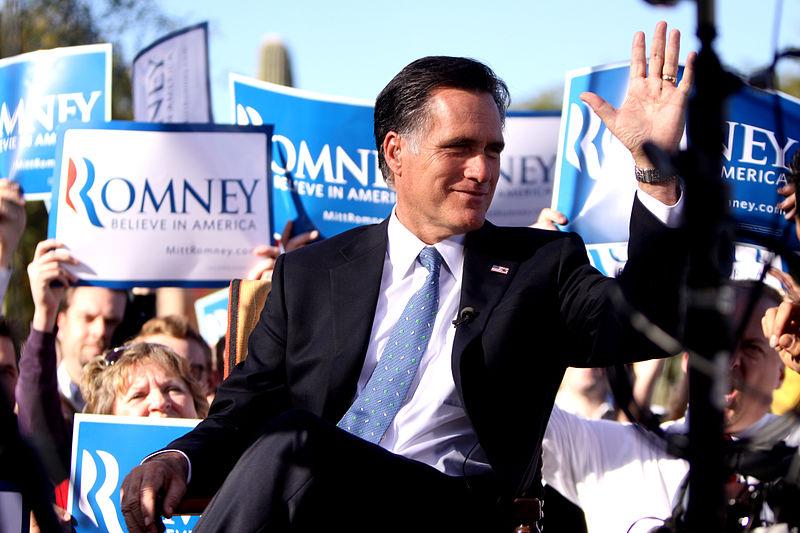Romney campaign shifts, declares that health care mandate is a tax
Mitt Romney won the Florida primary handily on Tuesday. (Photo by Gage Skidmore via Wikimedia Commons.)
It’s a penalty. Or a tax. And a penalty. Or a tax.
The debate over health care reform has moved to the campaign trail, and out of the court room, but Republicans are taking a cue from the court in deciding how to press home their attacks. They’ve been arguing that the health care bill’s individual mandate amounts to an unprecedented tax increase on Americans — an allegation that is politically toxic.
Most Republicans that is. Up until Wednesday night, Mitt Romney, the Republican presidential hopeful, used a similar provision in his expansion of the Massachusetts healthcare system and, for that reason or for others, had continued in calling the mandata a penalty, just like the Obama administration and Democrats.
But that changes now. In an interview with CBS 60 Minutes, Romney fell in behind his fellow Republicans and declared the individual mandate, at the federal level at least, a tax.
“I said I agreed with the dissent. The dissent made it very clear that they thought it was unconstitutional,” Romney said to 60 Minutes. “But the dissent lost. It’s in the minority. Now, the Supreme Court has spoken, and while I agreed with the dissent, that’s taken over by the fact that the majority of the court said its a tax and therefore it is a tax. They have spoken.”
Ron Christie, a Republican political strategist, said this whole episode was a big misstep for the Romney campaign.
“I take no joy in saying this,” he added. “I don’t like this at all.”
Eric Fehrnstrom, a top advisor to Romney, appeared on MSNBC last weekend and made the argument that’s caused Romney so much trouble.
Christie said that having the chief spokesman of the Romney campaign saying that the Supreme Court was wrong, and attributing those beliefs to Romney, was “really, really bad.”
Several prominent Republicans, including media mogul Rupert Murdoch, have lambasted the Romney campaign for having the wrong people onboard as staff to take on President Barack Obama. Christie said this is an example that will only fuel their fire.
“What he does need to do is grab some people by the scruff of their neck and by the back of their collar and say ‘Stop getting off message,’ ” Christie said.
Christie said it’s telling that, here we are the day after the 4th of July, with elections just four months away, we’re talking about Romney’s staff, rather Romney himself and his positions.
“He needs to have a very serious not only naval-gazing moment, but also an introspective moment, to say ‘is this the right direction I want to go into’ and ‘are these the proper staff to get me where I want to get to so I moved into 1600 Pennsylvania Avenue on Jan. 20,’ ” Christie said. “Right now, I’m not sure that’s the case.
Kathleen Hall Jamieson, director of the Annenberg Public Policy Center at the University of Pennsylvania, said how this plays out in the minds of voters will depend largely on whether voters buy the argument Romney made to 60 Minutes.
“Gov. Romney actually tried to make all of this consistent last night when he stayed that the states have a police power that the federal government does not have. And, as a result, exercising that power meant that the mandate and its penalty in Massachusetts did not constitute a tax, whereas at the federal level it does constitute a tax, because the federal government doesn’t have the police power,” Jamieson said. “If you can understand that in English, you’re doing really well. The question is, can Gov. Romney sell that as an explanation for why it is not a tax for him in Massachusetts but it is for President Obama at the federal level.”
Jamieson, though, said that Romney would be better served to move off of a healthcare, an area she said where Democrats historically have an advantage, and talk about an area of natural and situational Republican strength: the economy.
